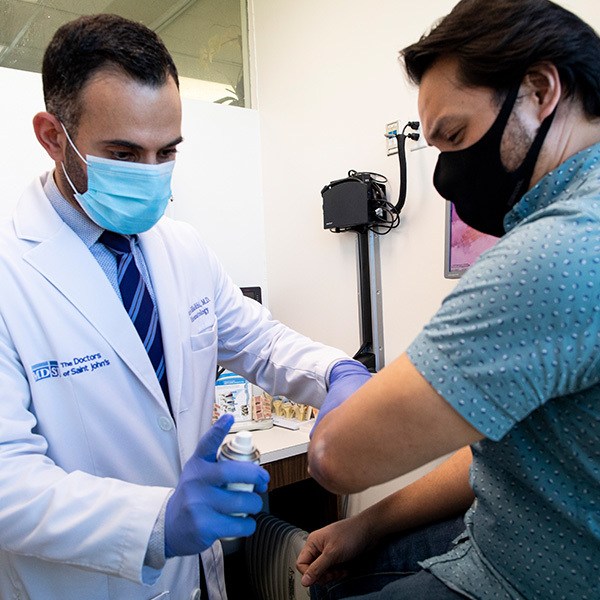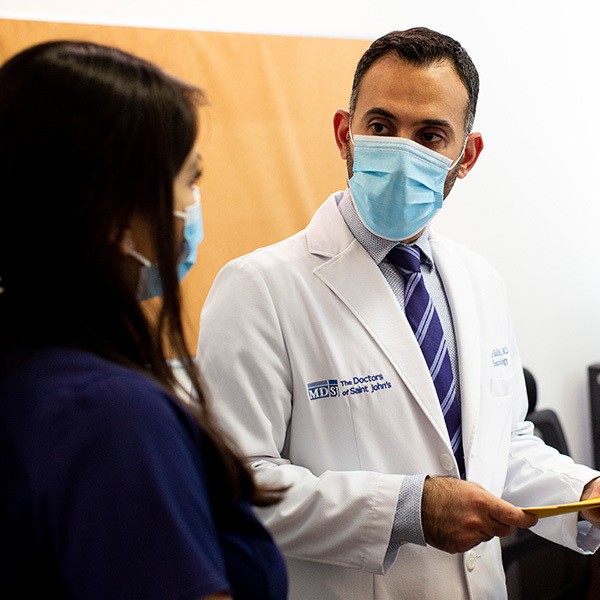Osteoporosis

Overview
What is Osteoporosis ?
Osteoporosis is the loss of bone mass and resulting changes in bone structure. It increases the likelihood of bone fractures, especially in the spine, wrist and hip. About 4.5 million American women over the age of 50 have osteoporosis. It is more common in non-Hispanic white and Asian women. Overall, one in two women and one in six men in this age bracket will suffer an osteoporosis-related fracture at some point in their lives.
Symptoms of Osteoporosis
Symptoms of Osteoporosis
Osteoporosis has no symptoms and is often referred to as a “silent disease” because it typically progresses without noticeable symptoms until a fracture occurs broken bone occurs. While osteoporosis itself may not present with overt symptoms, certain risk factors and signs may increase suspicion of the disease.
Diagnosis of Osteoporosis
Diagnosis of Osteoporosis
The primary means for diagnosing osteoporosis is bone mineral density testing. It measures the amount of bone in different parts of the body. The gold standard test for measuring bone mineral density (BMD) is dual energy X-ray absorptiometry (DEXA). This painless and quick scan, similar to an x-ray, provides valuable information about bone density and helps healthcare providers assess fracture risk.
Treatments for Osteoporosis
Treatments for Osteoporosis
Medications and supplements are the most common treatments for osteoporosis. Different classifications of drugs can help treat osteoporosis by slowing bone loss or speeding up bone formation. Some of these drugs are the Bisphosphonate family (Alendronate, Risedronate, Ibandronate, Zoledronic acid), Evista, Denosumab, Teriparatide, Abaloparatide, Romosozumab. Studies have shown they can decrease the risk of fractures. Those patients with osteoporosis should also ensure their diets include enough calcium and Vitamin D as required for their age. Physical activity has also been shown to be of benefit, especially weight-bearing exercises.

Clinical Trials
Clinical Trials
The rheumatologists at Saint John’s Physician Partners have been integrally involved in the development of medications that treat inflammatory arthritis conditions for decades. They were involved in the clinical trials that led to the approval at the Food and Drug Administration (FDA) for medications that treat rheumatoid arthritis (RA), psoriatic arthritis (PsA), ankylosing spondylitis (SpA), osteoarthritis, and other bone and skin conditions like osteoporosis and psoriasis advanced therapies, some of which are biologic treatments.

Osteoporosis Specialists
Osteoporosis Specialists
Orrin Troum, M.D. and Amro Elbalkhi, M.D. provide consultation, diagnosis, and treatment for rheumatic diseases including inflammatory arthritis (rheumatoid arthritis, psoriatic arthritis, ankylosing spondylitis), scleroderma, myositis, gout, lupus, osteoarthritis, and osteoporosis. The Medical Doctors of Saint Johns strive to provide world class care and a personalized treatment plan for all patients and their families.


